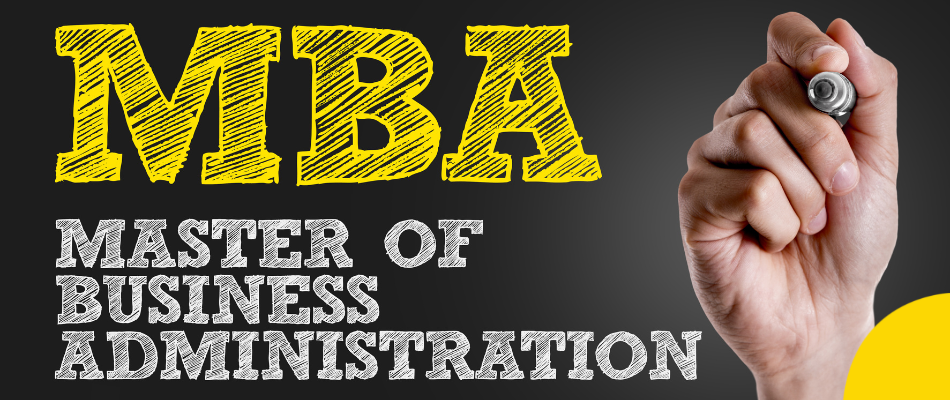You drop the three letters ‘MBA’ into a conversation, and immediately you have everyone’s attention. It’s probably one of the most highly recognised three letter acronyms around. It conjures up images of high powered executives, leading multidisciplinary teams of high calibre people, jetting around the world to important meetings, doing deals and earning absurd amounts of money.
This has certainly been true for some people. The reality depends on what you want from life and what you are prepared to sacrifice.
So, who needs an MBA in South Africa today? Is it the young executive, eager to climb the corporate ladder? Is it the jaded middle-aged manager wanting a change of scenery? Is it an entrepreneur whose lack of general business understanding is being exposed as his new business goes up the curve of success? Is it a civil servant who wants to bring focus and direction to a government career.
The answer does not lie in the qualification, because it can do all those things in the right hands. The answer, as with so many things, lies within yourself.
Click here to begin your MBA Journey
So, in summary, who needs an MBA in South Africa?
- An MBA will help in getting that ideal job in another country.
- You will be future-proofing your career, because of the broad focus of the qualification – your skills can be applied in many different roles.
- If your career has plateaued, an MBA will boost your career.
- An MBA will build a network of influential colleagues, which will become more valuable as you go up the corporate ladder.
- You are likely to earn more money as an MBA graduate.
- There are many different ways of studying towards an MBA, choose the one most suitable for your situation. You can opt for a part-time course, take an online MBA course, distance learning programme or put your career on hold while you do it full-time.
Doing an MBA is tough. You may have been out of the learning routine for a few years, and it may take time to get into mastering the study material. You will have to make sacrifices. You will spend long hours getting to grips with complicated concepts.
But once you graduate, you will join that highly exclusive group of men and women who have conquered the MBA.
No one can take that away from you.
A distance MBA works well when you have unpredictable daily commitments. These programmes usually have a significant digital delivery component to them, so you can catch up lectures and complete classwork when your diary and flight schedule allows it. However, you will miss the stimulating arguments in class. And don’t forget, there are modular MBAs as well.
Let’s consider some more aspects of an MBA
If you embark on an MBA, you are likely to be in the class with other mid-career folk. Some of them will be high achievers, from all sorts of different backgrounds and disciplines. They will be demanding and challenging both of the lecturers and of their fellow students.
You will have the opportunity to learn from them [and they from you] as well as getting to understand a variety of different fields. Not only that, but after graduation, you will have a solid network of friends which will last you a lifetime.
Select an MBA that’s right for you, that builds on your past experience and sets you up for the next phase. MBAs can specialise in finance, marketing or project management; other on entrepreneurship, technology or economics.
There is no ideal time in a career to do an MBA. Your decision will be guided by your current job and prospects, the funds available, your personal and family life and other commitments Choose a programme that fits your goals and your time.
The effort you put into an MBA is not just financial. There is an opportunity cost, time away from your family and loved ones, and of course don’t forget the long nights and weekends while you do assignments. If you are clear about what you want to achieve, and you have the support of those closest to you, then it could turn out to be a rewarding and adventurous journey.
Once on an MBA, you are going to be exposed to powerful ideas and meet remarkable people; be prepared to accept that you will be a different person at the end from the one that started the programme. You should also be open to new opportunities that present themselves, new career directions and fascinating interests. Grasp them, and make them work for you.
An MBA can take your career along a completely different path. With success comes respect, and that propels you further towards success. On a professional and personal level, you will reap the rewards of your hard work. Your MBA gives you the authority to be in the room and the confidence to contribute meaningfully to business discussions.
There are an overwhelming number of different MBA programmes to choose from. Each has its own specialisations and strengths. In addition, you will have to consider the format of delivery of the MBA. You are likely to have a choice between full time, part time or distance education. Each has its own benefits and disadvantages.
A full-time MBA is a wonderful immersive experience, and it is usually the shortest period within which to complete the qualification. However, it means that you will be out of the workplace – and a salary – for at least a year, you will miss out on promotional opportunities at work, and your social life will come to a complete standstill.
A part-time MBA will still keep you in the workplace, but you will have to juggle the challenges of work and study. This might be for you if you have a supportive employer.
Related articles:
Many people want to be in leadership positions in organisations that make the world a better place. The world is crying out for committed innovators who want to make an impact.
Let’s consider some of the reasons why you might want to do an MBA
1. I want to be on top of future change and disruption
An MBA provides a wide range of skills and insights, and particularly those of leadership and people skills. These sorts of skills are becoming ever more important as the 4th Industrial Revolution rolls out.
The classic MBA content of quantitative analysis, finance and operations are combined with strategy, and the softer skills of organisational behaviour and leadership. Graduates absorb a deep rich personal development experience that translates into dynamic career opportunities and value for future employers. Doing an MBA is a disruptive process. Purely by having an MBA, graduates are psychologically ready for change and disruption.
2. I want to run my own business
In the previous century, most MBA graduates followed a career in the corporate world. Now, as we come to the end of the first quarter of the 21st century, more and more MBA grads want to “do their own thing.” Entrepreneurialism is now a firm feature on MBA curricula.
An MBA qualification offers the best “power to weight” ratio when it comes to leadership savvy, decision-making skills and strategic insights. You will be able to develop a business plan, acquire venture capital, build a team and set up and run your venture. Research has shown that the failure rate for small businesses started by an MBA graduate is 50% less than the standard failure rate.
3. I want to work in other countries
Organisations all over the world are crying out for top candidates to work for them. A South African MBA has a special cachet, simply because of the range of opportunities and challenges faced by South African businesspeople. We are used to working harmoniously with people of varied cultures and languages. These intercultural skills and adaptability are highly sought after on the global stage.
4. I want a career change
An MBA is a powerful way of revitalising a stalled career. Thousands of doctors, lawyers, engineers, bank managers and civil servants have used an MBA to catapult their careers in exciting new directions.
A 2018 GMAC Research Snapshot reported that seven out of recent full-time MBA graduates said they could not have landed their current job without their degree. The same study also reported the 2 in 3 part-time MBA alumni agree they received more promotions than peers without their degree.
A 2016 GMAC study of 14 651 alumni from over 1 100 business programmes found that more than half (52%) were employed in an industry or job function different from their pre-degree employment. Two in five worked in an industry not even considered prior to business school.
If you define clearly what you want to achieve, and clarify the gaps in your current skill set an MBA can do wonders.
5. I want to earn big money
South African MBA graduates generally receive a higher salary than non-MBA graduates. The MBA equips graduates with all the skills needed to succeed in business. This applies to both the public and private sector.
An MBA is regarded as a signal that the recipient is ambitious and is prepared to put in the hard work for success. They also come with the versatility that an MBA bestows. Hence employers are prepared to pay more for an MBA graduate.
6. I want to make a difference
Right around the world more and more organisations are being called to account for their role in damaging the environment and damaging sustainability. An MBA will equip and executive with an understanding of all the aspects of the business and adjust accordingly.
Many people want to be in leadership positions in organisations that make the world a better place. The world is crying out for committed innovators who want to make an impact.
7. I want people to take me seriously
An MBA on your business card or in a gold frame on the wall behind your desk sends a formidable message. It’s a globally recognised qualification, that indicates that you are able to speak finance to the finance people, marketing to the marketing people and operations to the factory manager. And don’t forget that the struggle to earn an MBA produces strong self-esteem and an ability to argue and persuade.
Have you seen yourself in the conversation above? Can you see yourself as a person who writes MBA behind their name?
Click here to begin your MBA Journey
Related articles:









